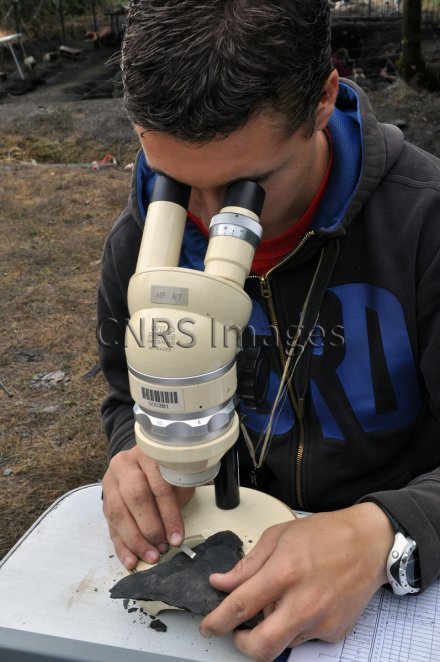Production year
2013

© Claude DELHAYE/CNRS Images
20130001_2046
Observation à la loupe binoculaire de restes fossilisés, sur le chantier de fouilles d'un site du bassin d'Autun datant du Permien, près de la commune de Muse, en Saône-et-Loire. Le bassin d'Autun était un des lacs de la chaîne hercynienne qui traversait la Pangée d'est en ouest, il y a 300 à 250 millions d'années. C'est une fenêtre ouverte sur la biodiversité de cette époque durant laquelle Muse était un grand lac, entouré d'une forêt luxuriante sous un climat tropical, voire équatorial. Ce site est fouillé depuis 2010 et cette année, en 2013, la couche à poissons a été atteinte.
The use of media visible on the CNRS Images Platform can be granted on request. Any reproduction or representation is forbidden without prior authorization from CNRS Images (except for resources under Creative Commons license).
No modification of an image may be made without the prior consent of CNRS Images.
No use of an image for advertising purposes or distribution to a third party may be made without the prior agreement of CNRS Images.
For more information, please consult our general conditions
2013
Our work is guided by the way scientists question the world around them and we translate their research into images to help people to understand the world better and to awaken their curiosity and wonderment.